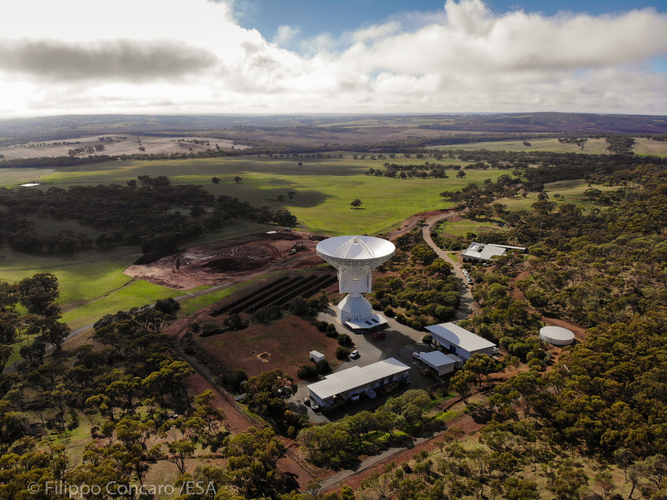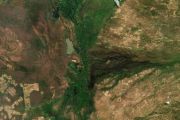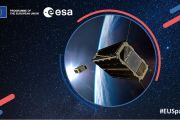
Copernical Team
NASA, Partners establish new research group for Mars Sample Return Program
 Sixteen scientists from the U.S., Europe, Canada, and Japan have been chosen to help future samples from the Red Planet achieve their full potential.
NASA and ESA (European Space Agency), its partner in the Mars Sample Return Program, have established a new group of researchers to maximize the scientific potential of Mars rock and sediment samples that would be returned to Earth for in-dep
Sixteen scientists from the U.S., Europe, Canada, and Japan have been chosen to help future samples from the Red Planet achieve their full potential.
NASA and ESA (European Space Agency), its partner in the Mars Sample Return Program, have established a new group of researchers to maximize the scientific potential of Mars rock and sediment samples that would be returned to Earth for in-dep ESA and NASA take decisions and plan for the future
 The next steps in exploring and using space for the benefit of European citizens were this week on the agenda at ESA's Council meeting in ESA/ESTEC, the Netherlands on 14 and 15 June. The possibility of the first-ever European astronaut to set foot on the Moon, a telecommunication satellite for lunar exploration and a mission to return precious rock samples from Mars were all discussed.
NA
The next steps in exploring and using space for the benefit of European citizens were this week on the agenda at ESA's Council meeting in ESA/ESTEC, the Netherlands on 14 and 15 June. The possibility of the first-ever European astronaut to set foot on the Moon, a telecommunication satellite for lunar exploration and a mission to return precious rock samples from Mars were all discussed.
NA Hera asteroid mission's first step
 A key element of ESA's Hera mission for planetary defence has left the facilities of its manufacturer OHB in Bremen - a major step in preparation for its eventual odyssey to the Didymos asteroid system.
The mission's Propulsion Module flight model, seen here, has been delivered to Avio, southeast of Rome, where propellant tanks, thrusters and associated pipes and valves will be integrated
A key element of ESA's Hera mission for planetary defence has left the facilities of its manufacturer OHB in Bremen - a major step in preparation for its eventual odyssey to the Didymos asteroid system.
The mission's Propulsion Module flight model, seen here, has been delivered to Avio, southeast of Rome, where propellant tanks, thrusters and associated pipes and valves will be integrated Sidus Space working with NASA team for Extravehicular Activity Services Contract
 Sidus Space, Inc. (NASDAQ:SIDU), a Space-as-a-Service company focused on mission critical hardware manufacturing; multi-disciplinary engineering services; satellite design, production, launch planning, mission operations; and in-orbit support is proud to announce that it is part of the Collins Aerospace team which was awarded NASA's Exploration Extravehicular Activity (xEVAS) services contract.
Sidus Space, Inc. (NASDAQ:SIDU), a Space-as-a-Service company focused on mission critical hardware manufacturing; multi-disciplinary engineering services; satellite design, production, launch planning, mission operations; and in-orbit support is proud to announce that it is part of the Collins Aerospace team which was awarded NASA's Exploration Extravehicular Activity (xEVAS) services contract. Sierra Space to train astronauts at Kennedy Space Center for Orbital Reef
 Sierra Space announced Tuesday the company will open an astronaut training center at Florida's Kennedy Space Center to build and operate a new commercial space station.
The Sierra Space Human Spaceflight Center and Astronaut Training Academy will train astronauts to work on Orbital Reef, a private business park space station to be built in partnership with Blue Origin for space tourists. S
Sierra Space announced Tuesday the company will open an astronaut training center at Florida's Kennedy Space Center to build and operate a new commercial space station.
The Sierra Space Human Spaceflight Center and Astronaut Training Academy will train astronauts to work on Orbital Reef, a private business park space station to be built in partnership with Blue Origin for space tourists. S New vacancies: Director of Science and Director of TEC

The European Space Agency is currently looking for a new Director of Science and new Director of Technology, Engineering and Quality, to join its executive board and support the Director General, with responsibility for relevant ESA activities and overall objectives.
ESA sets out bold ambitions for space

ESA has put forward its ambitious plans for the next three years and beyond to increase European autonomy, leadership and responsibility in space.
ESA pursues a shared European vision for the future of space transportation
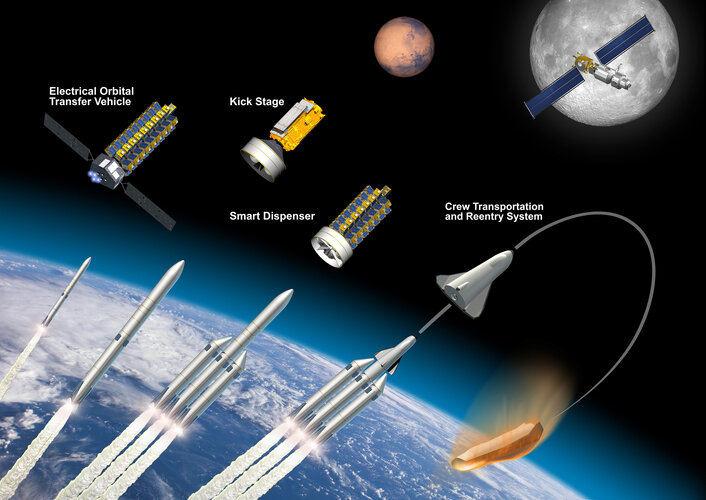
As the European Space Agency prepares to begin operations of its next-generation Vega-C and Ariane 6 launch systems complemented by the reusable Space Rider orbital transportation system, work is underway to define the future of European space transportation capabilities for the coming decade and beyond.
Vega-C set for inaugural launch
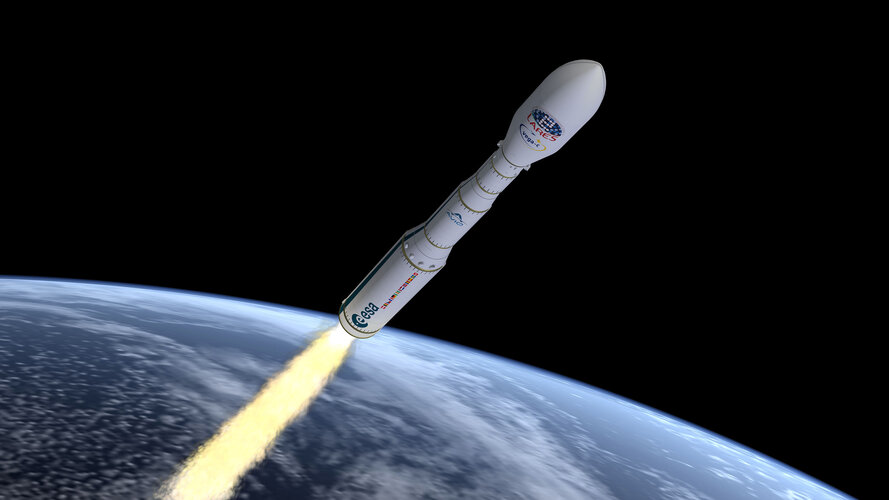
ESA’s new medium-lift Vega-C rocket is nearly ready for its inaugural flight, with its four fully-stacked stages now ready for payload integration, final checks and launch from Europe’s Spaceport in French Guiana.
Flight VV21 will lift off as soon as 7 July, pending suitable conditions for launch.

